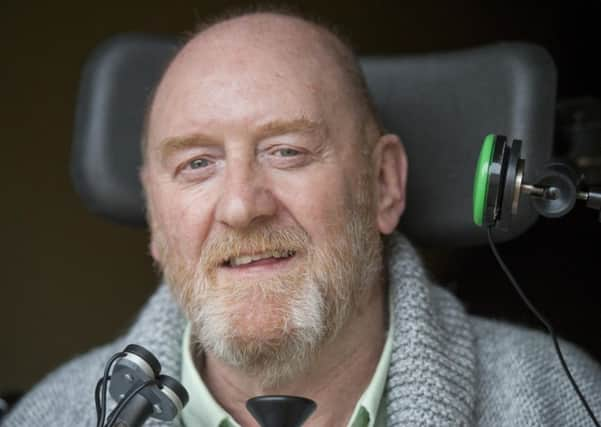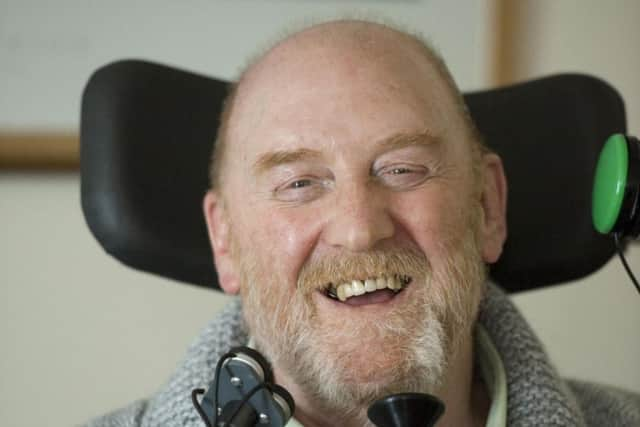Scots researchers join global MS treatment search


A team at Edinburgh University are delving into patients’ DNA in a bid to create therapies to tackle progressive MS, which can quickly leave patients immobile and in need of round-the-clock care.
It is one of 22 projects being funded in nine countries which was announced at a major MS conference in Boston, hailed as the biggest worldwide attempt to find effective treatments for the condition.
Advertisement
Hide AdAdvertisement
Hide AdCampaigners said they wanted to help fill a “void” in treatments currently available for progressive MS patients.


Collectively the projects being funded will cost more than £17.5 million, with support coming from charities around the world, including the UK’s MS Society, working together as the Progressive MS Alliance.
No treatment
In progressive MS, symptoms gradually get worse, with no periods of remission as in other forms of MS.
There is no treatment that can slow or stop the build-up of disability.
There are more than 100,000 people living with MS in the UK and most have a progressive form of the condition. Across the world, more than a million people have progressive MS.
Dr Don Mahad, senior clinical research fellow at Edinburgh University’s Centre for Neuroregeneration, is to lead the one-year study to investigate the causes and effects of DNA mutations in mitochondria - the tiny energy factories found inside all cells - in people with progressive MS.
In patients with progressive MS, more genetic mutations occur in the DNA of the mitochondria found in nerve cells. The Edinburgh researchers will aim to understand why these mutations happen and what the consequences are.
This could provide key information about how MS affects nerve cells and provide new targets for treatment.
Michelle Mitchell
Advertisement
Hide AdAdvertisement
Hide AdMichelle Mitchell, chief executive of the MS Society, said: “We know that people desperately want more effective treatments for progressive MS – and by working with MS charities across the world, we hope to achieve this.
“We are delighted to be co-funding this study which could lead to new ways of treating progressive MS.
“Over the last few years several new therapies for relapsing remitting MS have been approved for use in the UK, but there remains a void when it comes to effective therapies for progressive MS and while advances have been made, there is nothing yet available.
“This global research collaboration is ignoring international borders, we’re simply funding the best science in the world – such is the need to urgently get answers to key questions.”
Of the 22 projects being funded, four are in the UK, with Imperial College London, Cambridge University and Plymouth University also receiving funding.
Dr Mahad said: “I’m delighted to be part of this worldwide effort to find treatments for progressive MS, where there is such a huge unmet need.
“My own project focuses on the problem of energy deficiency within nerve cells in progressive MS, which I hope will add to our understanding of the condition and aid in the development of treatments that can help in the fight against MS.”
Robert MacPherson, 67, from Edinburgh, was diagnosed with MS 19 years ago and his condition quickly progressed, meaning he had to give up his job running golf tours four years later.
‘I was surprised and disappointed’
Advertisement
Hide AdAdvertisement
Hide Ad“I was surprised and disappointed at how quickly it progressed,” he said.
“It started as a simple tingling feeling in my fore finger and thumb.
“But then within four years I’d started to have problems controlling my fingers and legs. They were slow to react.
“My head knew what I wanted to do but mu body would not react as I wanted it to,”
Mr MacPherson firstly used a power chair to get around but after losing more control over his arms he started using a special chair with chin-activated controls which allowed him freedom and to live almost independently.
He said there was a real need to find new treatments to help people with progressive MS and welcomed the latest research efforts.
“They may not come soon enough to help me but I would like to think my grandchildren in future would be able to live in a world without the devastating effects of MS.”
SEE ALSO: